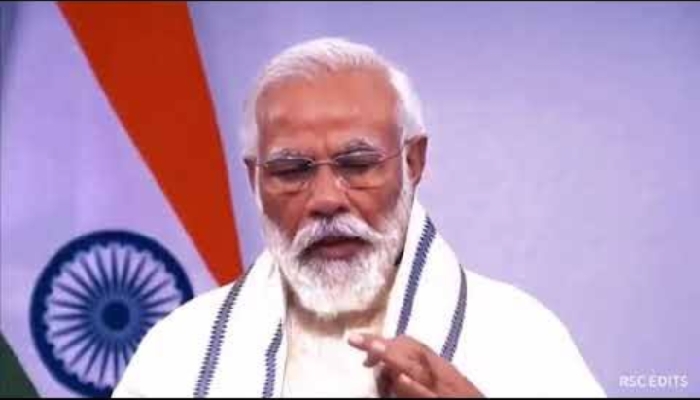New Delhi, Aug 12: China is moving ahead in areas like artificial intelligence (AI) and robotics and it would be a waste of time if India distracts itself by talking about temples and mosques, former Navy chief Arun Prakash said on Sunday.
However, Arun Prakash expressed hope that the abrogation provision of Article 370 and the change in the status of Jammu and Kashmir will bring peace and help foster integration and economic development in the region.
"For our whole existence as an independent nation, we have seen and suffered from these fissures - linguistic, religious, caste, etc. These conflicts have continued throughout our independent existence," Admiral Arun Prakash (Retd), while delivering Prem Bhatia Memorial Lecture in New Delhi, said.
"What we need to do is to try and tamp them rather than to exploit them. China is talking about artificial intelligence, robotics and machine learning and all that. And if we are going to talk about temples and mosques and so on, then obviously we are going to waste time," Arun Prakash added.
Curious to know whether anyone from the 'Raghuvansha' (descendants of Lord Ram) was still residing in Ayodhya, the Supreme Court on Friday had put this query to 'Ram Lalla Virajman', the deity and one of the parties in the politically sensitive Ram Janmabhoomi-Babri Masjid land dispute case.
Fourteen appeals have been filed in the apex court against the 2010 Allahabad High Court judgment, delivered in four civil suits, that the 2.77-acre land in Ayodhya be partitioned equally among the three parties -- the Sunni Waqf Board, the Nirmohi Akhara and Ram Lalla.
Arun Prakash, who served as the chief of Naval staff from July 2004 to October 2006, said on Sunday, "It is in key interest of national security to ensure peace and tranquillity domestically before even looking outside."
"So to take away the half front, which the Army Chief [Bipin Rawat] mentions, we need to ensure domestic peace, harmony, etc. Therefore, the issues that are of a divisive nature need to be minimised rather than exploited," Arun Prakash added.
In June this year, Army Chief Bipin Rawat said that Indian armed forces are ready for a "two-and-a-half-front war". Bipin Rawat was referring to Pakistan and China as two fronts and internal security threats as the half front.
Arun Prakash said Sunday, "Our actual preparation should have been to ward off Chinese pressure. They don't have to fire a bullet. There are many other ways of pushing India. And if we prepare to counter China, then Pakistan would automatically be taken care of."
Talking about recent situation in Jammu and Kashmir, Arun Prakash said, "One hopes that the recent abrogation of Article 370 and the changes in the status of erstwhile J&K [Jammu and Kashmir] will bring peace and help foster integration and economic development."
Earlier this week, the government revoked provisions of Article 370 of the Constitution, withdrawing special status to Jammu and Kashmir, and split the state into two Union Territories -- Jammu and Kashmir, and Ladakh.
"If we are to debunk Jinnah's two-nation theory and convince the Muslim majority Union Territory (UT) of J&K that they made the right choice in 1947, then we need to reflect seriously on some larger issues," Arun Prakash said.
"One, whether the pursuit of majoritarianism of any kind is a good idea for a multi-religious, multi-ethnic and multi-lingual country like India. Two, whether in generating insecurity amongst any section of our people will enhance India's security or undermine it," Arun Prakash added.






Comments
When china products in every field available globally India is lagging far behind filled with hate crime and polarisation and rapings..development remains only a slogan.
Add new comment